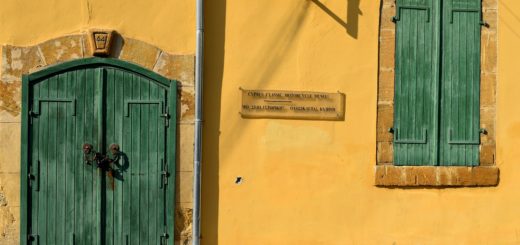The Legend of “Folar”
“The legend is that in a Portuguese village there lived a young woman named Mariana whose only desire in life was to marry early. So much he prayed to Santa Catarina that his will was fulfilled and soon two suitors appeared to him: a rich nobleman and a poor farmer, both young and beautiful. The young woman again asked Santa Catarina for help to make the right choice. While she was concentrating on her prayer, she knocked at Amaro, the poor farmer, asking him for an answer and marking her Domingo de Ramos (Palm Sunday) as the deadline. After a short time, on that same day, the gentleman appeared and also asked for a decision. Mariana did not know what to do.
On Domingo de Ramos, a neighbor was very anxious to warn Mariana that the gentleman and the farmer had found their way to their house and that, at that moment, they were waging a death struggle. Mariana ran to the place where the two faced each other and it was then that, after asking for help from Santa Catarina, Mariana gave the name of Amaro, the poor farmer.
On the eve of Easter Sunday, Mariana was in torment, because she had been told that the gentleman would appear on the wedding day to kill Amaro. Mariana prayed to Santa Catarina and the image of the Saint, it seems, smiled at her. The next day, Mariana went to put flowers on the altar of the Saint, and when she arrived home, she noticed that on the table was a large cake with whole eggs, surrounded by flowers, the same ones Mariana had placed on the altar. He ran to Amaro’s house, but found him on the way and he told him that he had received a similar cake. Thinking it was the nobleman’s idea, they went to his house to thank him, but he had also received the same kind of cake. Mariana was convinced that everything had been the work of Santa Catarina.
Initially called folore, the cake came, in time, to become known as folar and has become a tradition that celebrates friendship and reconciliation. During the Christian holidays of Easter, the godchild usually bring a branch of violets to the godmother of baptism on Domingo de Ramos, and on Easter Sunday he offers him a meal.”









Recent Comments